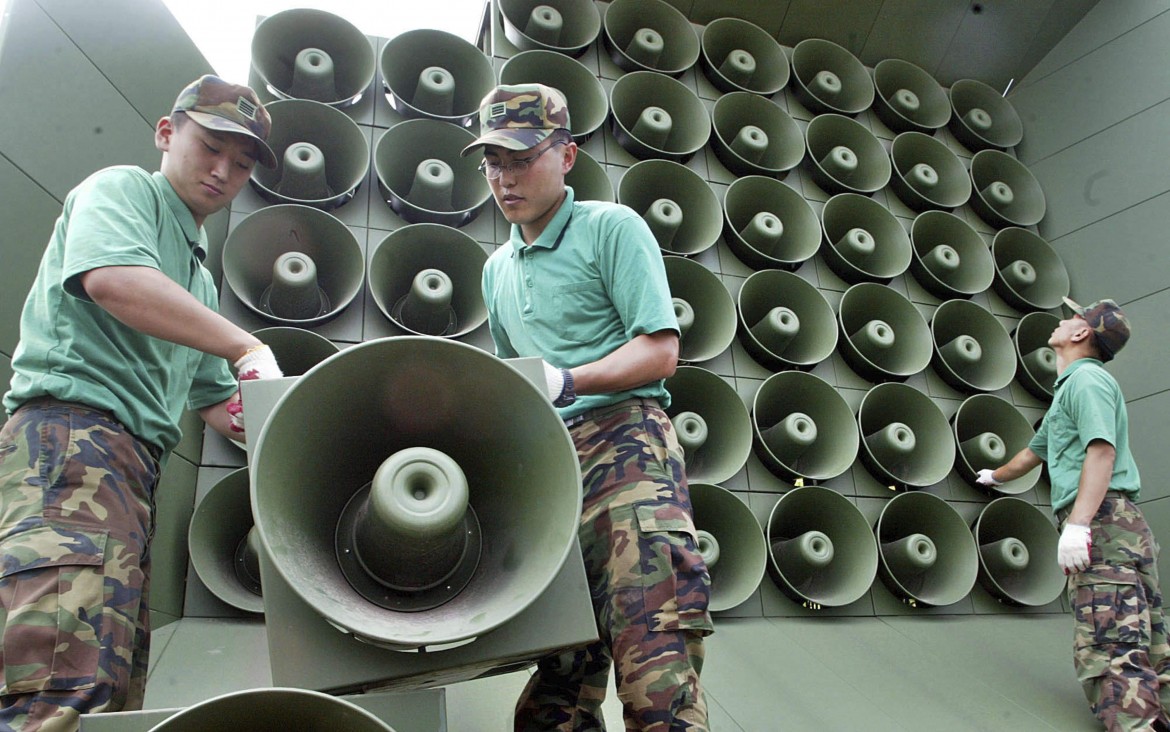Interview
Does Trump understand what he’s up against in North Korea?
We spoke with North Korea expert Antonio Fiori about upcoming negotiations. ‘Negotiating with North Koreans is complex, and it looks like the U.S. doesn’t know who they’re dealing with.’

North Korea leader Kim Jong-un and South Korea president Moon Jae-in will hold a summit on April 27. After the former decided to halt all missile tests, everything seems to be leading to a historical turning point: following the meeting between the North and South Korea officials, everyone is eagerly waiting to know where and when Kim will meet Donald Trump.
We’ve looked at it with the help of Antonio Fiori, who works as an Asian history and institutions adjunct professor, both in Bologna and at Seul’s Korea University. His book Il Nido del Falco (“The Falcon’s Nest”) is key to understanding the current situation in North Korea.
Let’s talk about the latest news: how should we assess Kim Jong-un’s claims of halting nuclear and missile tests?
If we read through the Workers’ Party document we get the following picture: Pyongyang is committed to dismantling its existing supply, not selling weapons to third countries and shutting down the Punggye-ri nuclear site. Besides the fact that Punggye-ri had to be closed due to the risk of collapse, since the underground tests trigger huge tremors, Kim Jong-un’s latest move is part of Pyongyang’s strategy. In addition to this, we have to consider that during his speech Kim doesn’t mention the complete elimination of the fissionable material. They propose dismantling what they already have, but there’s no reference to what they have achieved with their nuclear and missile programs. In other words, we can say that they’ve reached a point where they don’t even need to test the material they have anymore. They’ve got where they wanted to: a nuclear power confronting the rest of the world. We got to this point also thanks to Donald Trump’s mistakes.
That indicates a predisposition for negotiating. What does it mean from a North Korean point of view?
They’ve always been willing to negotiate. We should keep some aspects in mind: the country’s economy is not advanced, but it’s not too bad either. There’s been a downturn due to sanctions, but if they are removed the North Korea economic situation will further improve. That will be another boost for the regime.
You mentioned a huge mistake by Donald Trump. What is it?
Although I’m always in favor of agreements, working as an analyst I can’t help but highlight Donald Trump’s massive mistakes, such as holding secret negotiations with North Korea (as proved by Pompeo’s trip to Pyongyang) and accepting Kim Jong-un’s proposal of bilateral negotiations in the space of three minutes. Trump doesn’t know where he’s heading; they’re not prepared and don’t have any people working on these topics. The U.S. hasn’t set any preconditions before starting this dialogue: this is a terrible mistake. If you negotiate with Kim without any precondition you’re granting them the status you’ve been refusing for so long. And secondly, do they know how complex it will be to talk about nuclear dismantling? Are they aware of the difficulties they’ll face, and how much room for maneuver Pyongyang will have? We’re talking about an administration where no one has a clue of what strategy they should follow. Negotiating with North Koreans is complex, and it looks like the U.S. doesn’t know who they’re dealing with.
Speaking of the summit between Kim and Moon, if they reach a peace agreement, that would be a significant recognition for North Korea. What influence could this have on Washington?
If Moon Jae-in, who’s a great diplomatic actor, gets to a peace agreement, that would be an incredible step forward. Going beyond a mere armistice is not just something symbolic but also effective, especially if it leads to economic cooperation and political relations between North and South Korea. But there’s something we should wonder about: I still don’t believe that Kim could have the chance to interfere with the alliance between Seoul and Washington, but he’s playing an incredible game. Although Moon is reiterating his willingness to keep Washington in the conversation, we’re facing a shocking scenario: it they sign a peace agreement and have a falling out with Washington. At that point, Pyongyang will have China, Russia and even South Korea on its side.
Other than that, could a peace agreement lead to new discussions about a potential reunification?
A peace treaty would mean that the South can’t claim the peninsula as its own anymore. Secondly, this is a precondition for any other future development. It’s clear that a peace agreement doesn’t automatically lead to reunification, as things stand now. But the peace between the countries is required if we want to consider that possibility. What I see is a revised Sunshine Policy that could be the foundation for a federation.
Originally published at https://ilmanifesto.it/la-strategia-di-kim-e-lineare-trump-non-sa-cosa-laspetta/ on 2018-04-24
